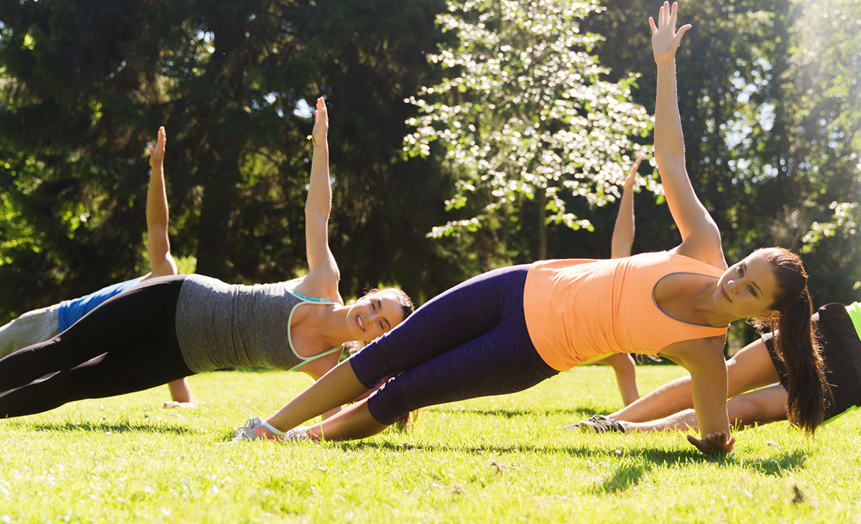Social Comparisons (and How to Cope with the Stress on Your Mind, Body, and Soul)
One of the gifts of our modern world is our ability to be connected to the people we love at every second of every day. Thanks to texting, email, video chatting, and social media, we get to stay in the loop with our friends and family, even if they are miles and miles away. But what happens when we start to compare our own lives to the lives of others be they our inner circle, celebrities, or co-workers or acquaintances? We start to lose sight of our own unique selves, and can start a spiral of self-doubt, or even self-loathing, that can be hard to bounce back from. Understanding why we compare ourselves socially is one of the first steps to making sure this natural response doesn’t take over, and we’ll also take a look at the role that social media plays in these harmful comparisons. Finally, we’ll point to some powerful tools that will let you focus on being your best self, no matter what.
Social Comparison Theory
As defined by Psychology Today, social comparison theory refers to the ways in which “we determine our own social and personal worth based on how we stack up against others.” This is a normal, natural, human instinct, and, when supported by self-affirming practices and a healthy network of true friends and family, and self-care practices, it can actually help you gain insight about yourself and those around you. But social scientists make clear that spending too much time on comparing yourself to others can be detrimental. You can begin to feel the negative emotions of envy and self-loathing when you constantly compare your looks and your accomplishments to those of others. This process of self-analysis in the context of others appears to have a much milder effect when done in person; after all, your friends will be the first to shut down any negative self-talk during an in person interaction. When it comes to online comparison however, the negative impact appears amplified, which means we need to start paying closer attention to what we think about when we engage in some serious screen time.
The Influence of Social Media
Social networking sites like Facebook and Instagram have been described as a place where people curate a sort of “highlight reel” to share with the world. But if you compare your own day-to-day life with this carefully presented facade, it’s easy to feel that your reality comes up lacking. Two different studies published in 2014 make this clear. In one paper, researchers asked young women to spend 10 minutes on Facebook, while a control group spent 10 minutes on a “neutral” website. The Facebook group reported being in a more “negative” mood after the experiment, and also self-reported more fixation and disappointment with their physical features, including hair, skin, and body type.
Another study took these findings even further, and found that self-esteem levels tend to go down for people who engage heavily in social media, even if they have healthy habits in their real life. In sum, the experience of looking at images of the lives of others online can negatively affect your mood, and your outlook on your physical appearance, and, it seems that engaging in these platforms for lengthy stretches of time will actually shift your focus away from the positive aspects of your life.
Self Care & Gratitude: Two Tools for Healing
What’s telling about the second study mentioned is that those with healthy habits who engaged too long in social media had lower self-esteem than those who had unhealthy habits, but didn’t go online as much. This seems to indicate that the most important thing about self-worth is actually how much your focusing on yourself, as opposed to others. One easy way to shift your attention back to you? Self-care. For busy people, this can seem like a self-indulgent waste of time, but taking time to take care of yourself can improve your energy levels, your outlook on life, and make you a much more capable friend, parent, or coworker. Self-care looks different for different people, but here are some ideas to get you started:
- Exercise. A leisurely walk, a vigorous bike ride, or even a 10 minute stretch session can help your body feel attended to and cared for.
- Sleep. Turn off the worries of the day and ensure you have a quiet, dark, relaxing place to unwind in the last 15-60 minutes before going to sleep.
- TLC. A day at the spa, or even a simple hot bath filled with essential oils in your very own home. Pampering your body can ease your mind, and help you see yourself as someone worthy of care and attention.
Another great piece of self care is a strong gratitude practice. Gratitude means that you open yourself to seeing the good in the world, and accept it freely. Instead of mentally tallying your faults in relation to the achievements of others, begin to develop a daily gratitude practice where you simply list the good things in your life. This could be as simple as the clean water in your tap, or as significant as your ability to provide for your family. Taking just a few minutes a day to meditate on what’s going right will help protect your self-esteem from the negative self-talk that only wants to point out what’s wrong.
Social comparisons can wreak havoc on an otherwise healthy person, so do your part to show gratitude and care for yourself, and limit your social media screen time as needed. The result will be a happier you, at peace with who they really are, and ready to share those unique qualities with the world.
XOXO Tina
Source
https://www.psychologytoday.com/basics/social-comparison-theory
https://www.researchgate.net/publication/275507421_Social_comparison_social_media_and_self-esteem
http://www2.psy.unsw.edu.au/Users/lvartanian/Publications/Fardouly,%20Diedrichs,%20Vartanian,%20&%20Halliwell%20(2015).pdf
https://www.researchgate.net/publication/275507421_Social_comparison_social_media_and_self-esteem





